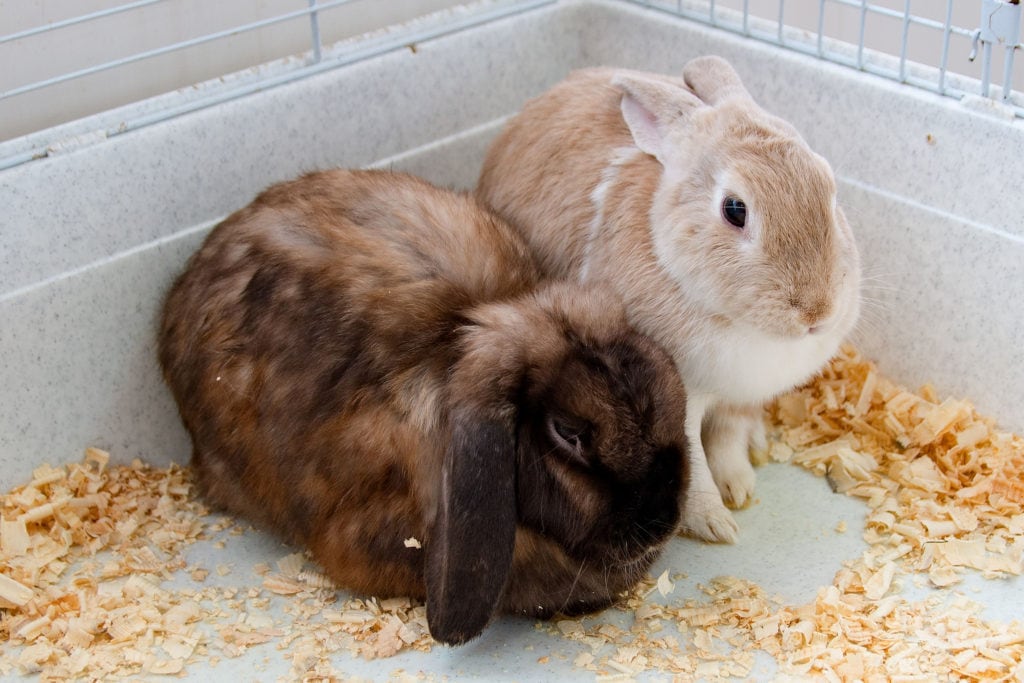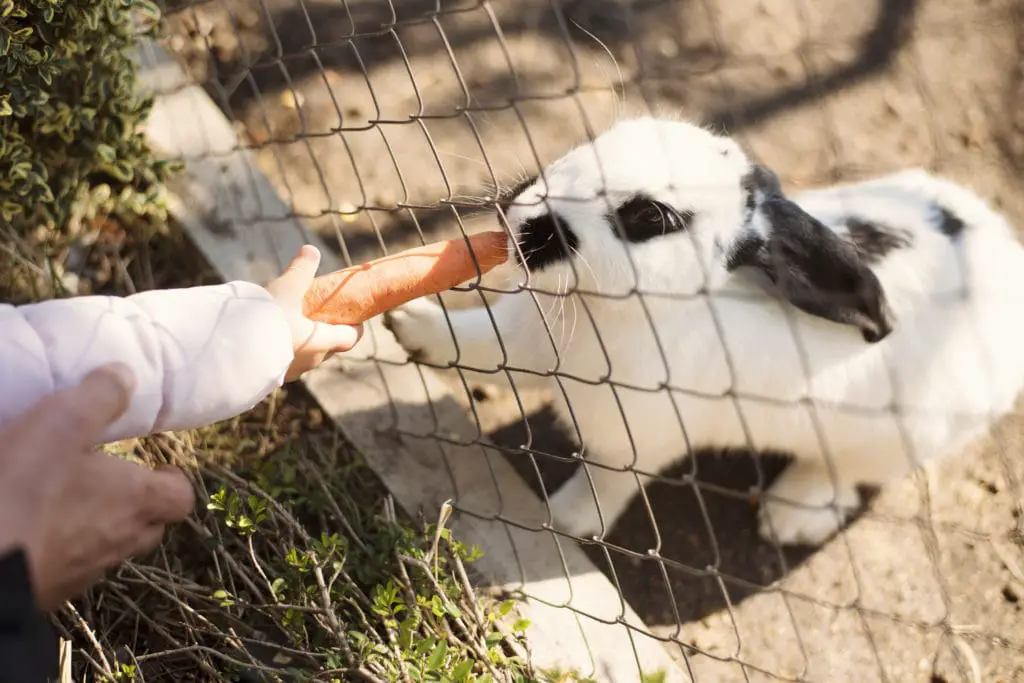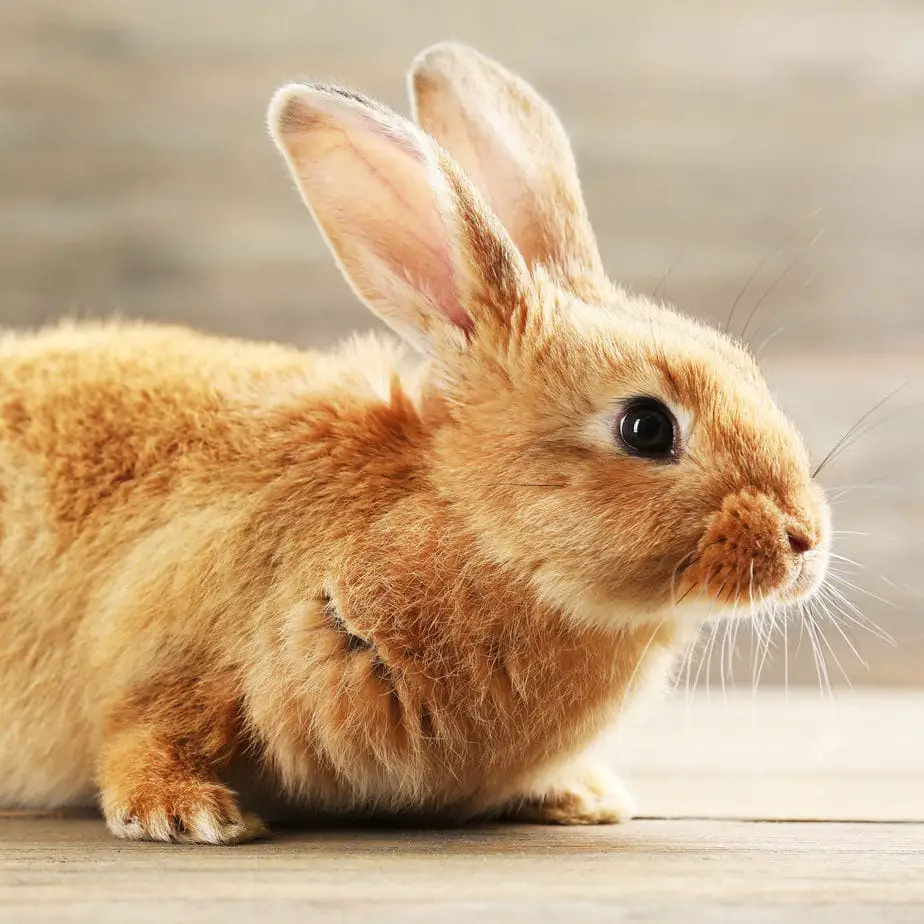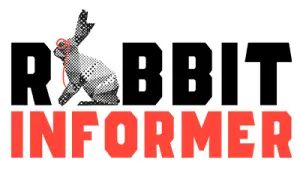
It may be concerning to see your rabbit sitting in a corner because rabbits typically jump around all day and are known to be very active animals. These are the five potential reasons your rabbit might be sitting in one corner.
Your rabbit sits in a corner if they are feeling shy, territorial, unsafe, or if they feel ill. If your rabbit is sitting in the corner, evaluate their current behavior and their typical behavior before acting on your concerns.
If you’re worried about your pet rabbit’s behavior, reading this article will help you know exactly how to identify why your rabbit continues to sit in one corner.
Your Rabbit Is Shy
Some rabbits are shy and enjoy time alone. Your rabbit most likely likes the corner and finds it as a spot to hang out without being interrupted. If you find your bunny in a corner when you have guests over at your house, your bunny is most likely just being shy and prefers the corner since it provides more security.

A shy rabbit is perfectly normal and it’s simply the nature of most rabbits. You could try altering your behavior so your pet rabbit sees you as a friend, rather than a threat or predator, but when you try to force yourself upon your rabbit, they become worried and anxious. Especially if your pet rabbit is fairly new to your home.
One of the common misconceptions about rabbits is that they like to be held and cuddled. While it is okay to hold your rabbit every once in a while, they prefer to roam around on their own. Rabbits love their space. There are many things you can do to alter your behavior to win over your shy rabbit such as giving it space and feeding it a few treats every once in a while. You can offer your rabbit things like carrots, apples, oats, and herbs. You can learn some great, and effective, ways to bond tightly with your per rabbit in my article Rabbit Only Comes for Food? Six Better Ways to Bond.
Your Rabbit Is New to Their Environment
Did you just bring your rabbit to its new home? It may just be adjusting to the new environment and staying in the spot that it feels most safe to them. It’s best to limit your rabbit’s space when first bringing it home. Make sure to keep your new pet rabbit in its cage for the first week or two and then gradually expand its space.
When a rabbit is new to an environment, it’s vital to give it a few days to adjust. Make sure that your rabbit has a cage and/or cardboard. These items allow for your rabbit to have an official “safe space” to roam around in, instead of a corner. It’s also important to keep your rabbit’s belongings inside or around its safe space.
You’ll know that your rabbit is comfortable with you and its new environment when it experiences behaviors like nibbling on your fingers, running around your feet in circles, acting calm, lying down and stretching out, and binkying. Binkying is when your rabbit jumps in the air while slightly twisting its body at the same time.
The Corner Is Your Rabbit’s Safe Spot
You need to consider your rabbit’s nature. Rabbits in the wild are one of the common prey animals that other animals hunt. They’re sometimes less outgoing than dogs and cats because of that reason. Your rabbit is staying alert for animals that could potentially eat them, even though your rabbit feels perfectly safe in your home.
Your rabbit feels the need to sit in the corner because it believes that it’s safe from predators there. If your rabbit feels the need to stay in its safe spot for long periods of time, your rabbit may feel anxious or worried. When your rabbit is experiencing this behavior, try not to pick them up or take them out of their safe spot. This will make them feel threatened, and they may become aggressive towards you.
TIP
A mother rabbit may retreat to her “safe spot” after giving birth. To learn more about how to care for a mother rabbit at this vulnerable time, see Guide: How to Care for Rabbit After Giving Birth which has specific actions you can take to make your mother rabbit feel more relaxed and calm.
If you want to be around your rabbit, instead of taking them out of their safe spot, sit with them in the safe spot and let them come to you. Don’t force your rabbit to be next to you or held by you. Your rabbit will learn that you’re a friend rather than a predator very quickly if you continue to give your rabbit the space that it needs.
Your Rabbit Is Territorial
Your rabbit may just be territorial with that specific corner in your home. If you catch your rabbit rubbing its chin against different items near this corner, they are very territorial.

This behavior is normal for rabbits. When rabbits rub their nose up against different items it’s called chinning. They do this because they want to get their scent on various items in that area and show that these items belong to them. They are marking their territory.
Rabbits display territorial and aggressive behavior most commonly during the spring. If you find your rabbit displaying territorial behavior in the spring, that is why your rabbit is sitting in one corner.
If you hear a growling noise, you can take a look at my article all about rabbit growling here to learn more about what it means, it’s often another sign of aggression. Pregnant rabbits also can be aggressive at times and display their own signs. Read more about aggression in pregnant rabbits here.
If your rabbit is showing aggressive behavior frequently, they’re afraid of being handled or picked up. Make sure to ask yourself why your pet rabbit is experiencing aggressive behavior, and give them as much space as possible.
RABBIT FIGHTING? See some of the most common reasons rabbits will fight with each other and specific things you can do to stop it in my guide on why rabbits fight here.
Your Rabbit Is Ill
If your rabbit is sitting in the corner for long periods of time and seems as if it doesn’t want to move, that’s a sign that your rabbit is in pain. Your rabbit may be unwell and it should be taken to a vet ASAP.
You can try giving it a handful of pellets or greens, and if your rabbit doesn’t seem interested in eating any food, that is a concern that should be brought to a vet’s attention.
Other signs of illness include:
- Missing fur/hair
- Appetite changes
- Strange behavior
- Abnormal fecal output
- Facial swelling
- Drooling
- Posture changes
- Slowed down breathing
If you find your rabbit experiencing any of these symptoms, reach out to your vet as soon as possible to seek treatment, and so you can avoid any further illness.
